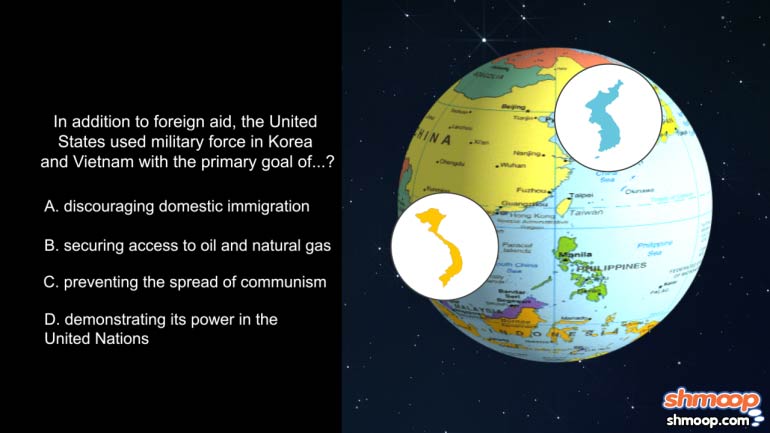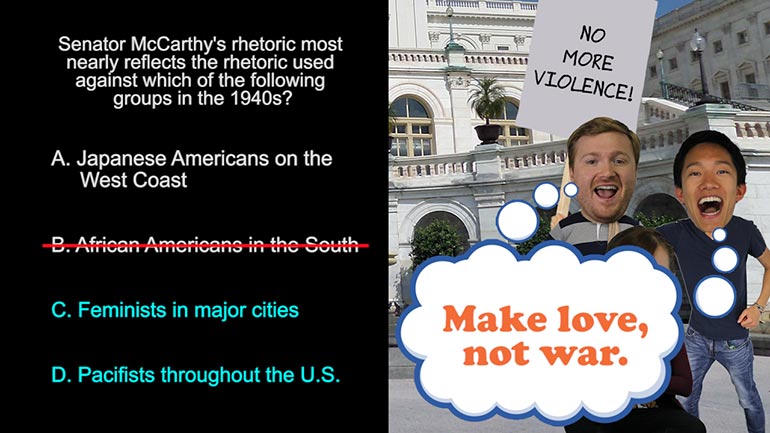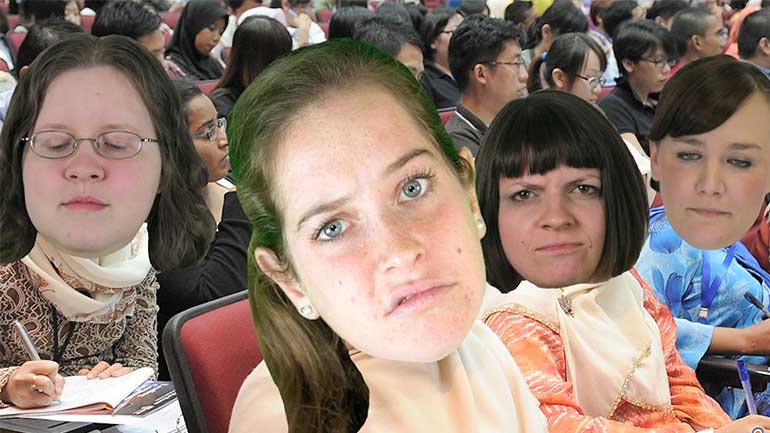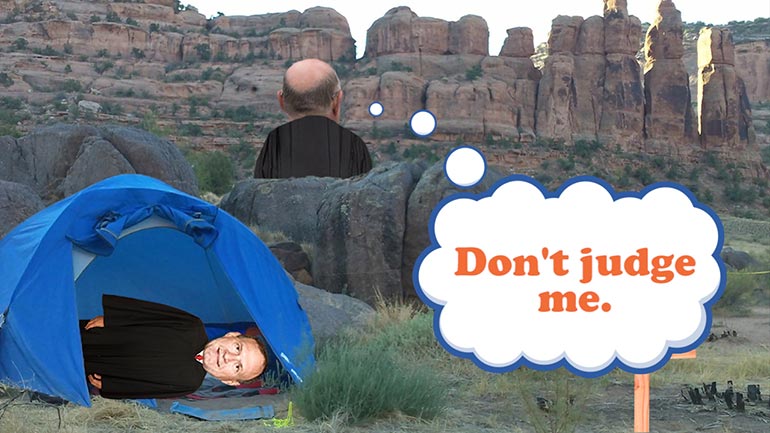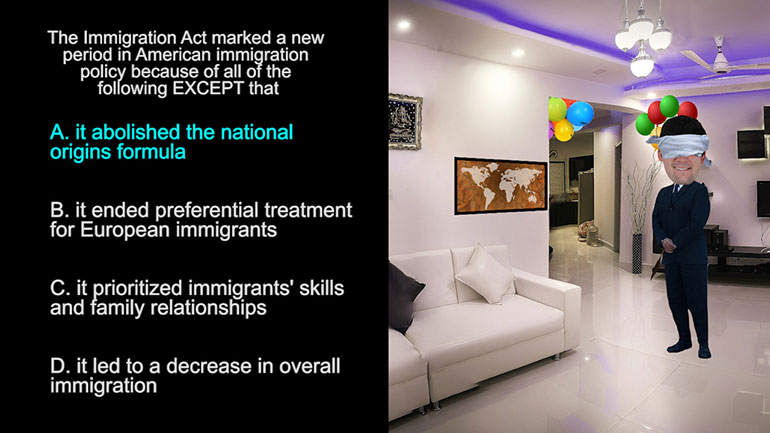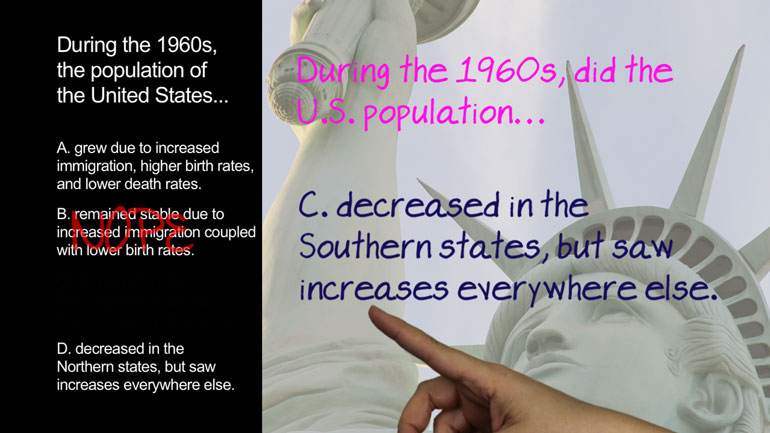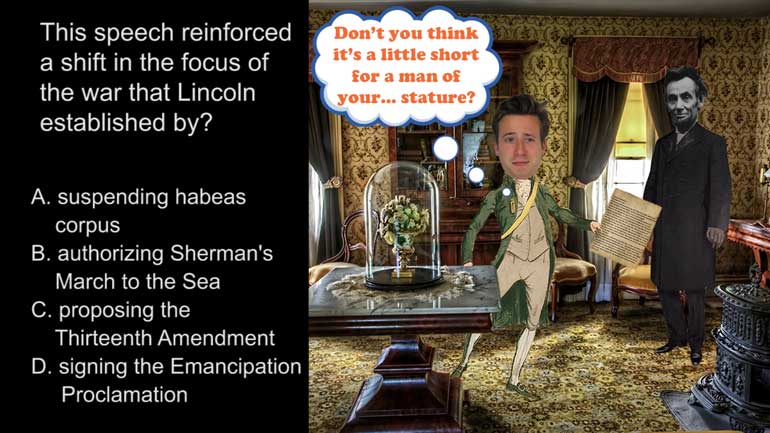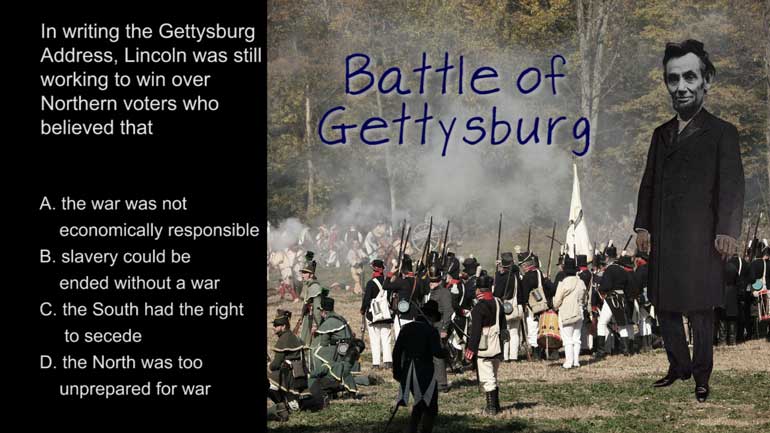ShmoopTube
Where Monty Python meets your 10th grade teacher.
Search Thousands of Shmoop Videos
Playlist U.S. History: 1945 – 1980 10 videos
In this AP U.S. History question read the excerpt and determine how it reflects on conceptual shifts in American Foreign Policy. AP U.S. His...
AP U.S. History: Industrial American in 19th Century Drill 1, Problem 5. In addition to foreign aid, the United States used military force in Korea...
AP U.S. History: Urban Society in 19th Century Drill 1, Problem 1. In this AP U.S. History question figure out how the cutoff of oil in Americ...
AP U.S. History 1.6 Period 8: 1945–1980 221 Views
Share It!
Description:
AP U.S. History 1.6 Period 8: 1945–1980. Senator McCarthy's rhetoric most nearly reflects the rhetoric used against which of the following groups in the 1940s?
Transcript
- 00:00
Thank you We sneak then here's your shmoop du jour
- 00:05
brought to you by the communist threat being forced to
- 00:08
read dust copy tell from start to finish Okay ben
- 00:13
Better position of impotence even the nation in the world
- 00:17
Are you fine fellow And the question senator mccarthy's rhetoric
Full Transcript
- 00:21
most nearly reflects the rhetoric used against which of the
- 00:24
following groups in the nineteen forties And here your candle
- 00:28
answers No All right let's take a look at mccarthy's
- 00:33
rhetoric In the excerpt he says the reason the u
- 00:36
s finds itself in danger is because of the traitorous
- 00:39
actions of those who have been treated so well by
- 00:42
this nation Mccarthy felt that you couldn't rely on anyone
- 00:45
since even the most patriotic among us could secretly be
- 00:48
working for the communists Talk about some major trust issues
- 00:52
let's see which group and the answers had the same
- 00:54
kind of accusations leveled against them in the forties was
- 00:57
senator mccarthy's rhetoric similar to the rhetoric used against be
- 01:00
african americans in the south The racist and discriminatory language
- 01:04
against african americans was awful but it wasn't specifically about
- 01:08
them working to sabotage the government is communist so it's
- 01:11
not good that kind of rhetoric have been used against
- 01:14
sief feminists in major cities Well the feminist movement received
- 01:17
a lot of ill will in their fight for gender
- 01:19
parity but similar to passive is fighting to the end
- 01:22
of the war These groups weren't suspected of actively trying
- 01:25
to overthrow the government more like trying to promote equality
- 01:29
in peace the horror so that eliminates see andy which
- 01:33
means that mccarthy's rhetoric Most nearly reflects rhetoric used against
- 01:36
a japanese americans on the west coast after the bombing
- 01:40
of pearl harbor The same kinds of sabotaging the u
- 01:43
s government arguments were made against japanese americans who many
- 01:47
suspected were collaborating with japanese governor Despair led to the
- 01:51
nineteen forty two internment of one hundred ten thousand japanese
- 01:55
americans along the west coast So the answer is a
- 01:58
as in a terrible stain on our nation's collective conscience
Related Videos
AP U.S. History Exam 2.45. The journey shown on the map was an example of...what?
AP U.S. History Exam 2.26. This speech reinforced a shift in the focus of the war that Lincoln established by...what?
What did the Spanish messengers bring with them to North America? Hint: you probably wouldn't be thrilled to get this for your next birthday.
AP U.S. History Diagnostic 24. How did the United States choose containment over the National Security Council Report in Latin America?
AP U.S. History Exam 2.25. In writing the Gettysburg Address, Lincoln was still working to win over Northern voters who believed that...what?

